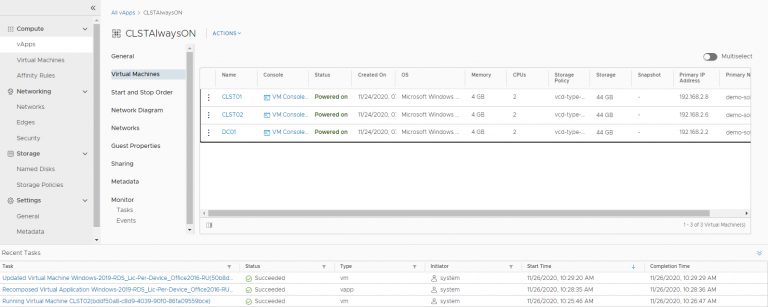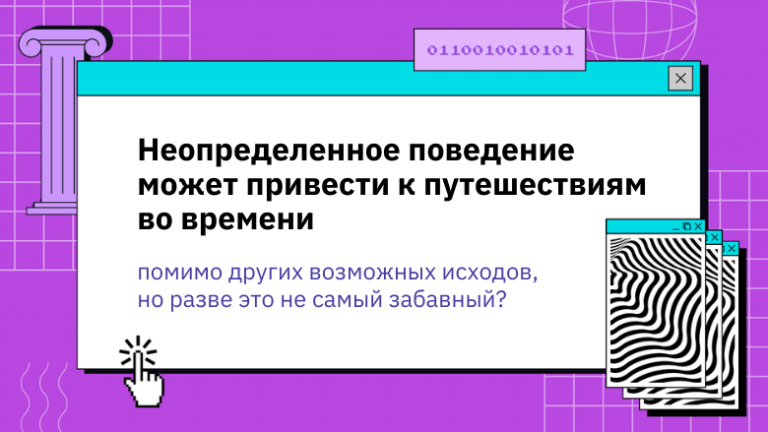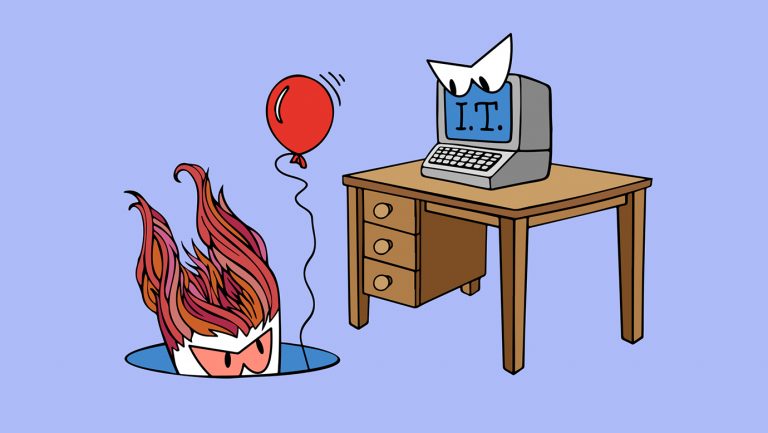On the edge CCNA 200-301
A little about myself, I work as a network engineer in a government structure. I came to the position of a junior admin from a civil engineer in 2017 and just went with the flow for a while. Not yet going to comprehend the field of certifications. Additional motivation was a fleet of ten Cisco switches at work.
The text is inspired by thoughts “what if it will come in handy for someone else or help determine the vector of development”, as well as thanks to note Dmitry Bubnov.
The first, and most important, difference – Dmitry already had experience with networks (5+ years and was a Mikrotik coach), second, he passed CCNA before updating the track.
I became interested in networks not so long ago (about a year ago), so my text can help those who are still at the very beginning of their journey. And he doesn’t quite understand why he went for it.
About what
Historical background: Previously, CCNA was divided into two tracks, ICND1 and ICND2. They could be handed in at once, or they could be taken separately. I will not go deep into the old exam, each passed it in different ways, someone once, someone in order. But the general recommendation was the delivery of the composite because ICND1 is quite simple.
Everything changed in 2020, Cisco rolled out a global update of the exam track.
Let’s look at the changes from February 24, 2020. Firstly, the time allotted for the exam has changed, now the exam is given 120 minutes, versus 90, and the exam is now uniform.
Shoveled exam blocks Old topics 200–125
-
15% Network Fundamentals
-
21% LAN Switching Technologies
-
23% Routing Technologies
-
10% WAN Technologies
-
10% Infrastructure Services
-
11% Infrastructure Security
-
10% Infrastructure Mgt
Now at 200-301
-
20% Network Fundamentals
-
20% Network Access
-
25% IP Connectivity
-
10% IP Services
-
15% Security Fundamentals
-
10% Automation and Programmability
Added themes
-
Networking Fundamentals – Routers, Cables, IPv4 and IPv6 Switches, TCP and UDP
-
IP connectivity – OSPFv2, IP routing
-
IP Services – SNMP, NTP, DHCP, QoS
-
Security Fundamentals – Wireless Security, VPN, Port Security
-
Network Access – VLANs as well as Trunking, EtherChannel
-
Automation and Programmability – Chef, Puppet, REST API, JSON, SDN
Deleted Topics
-
Networking Fundamentals – OSI Model
-
LAN Switching – VTP, Frame, Switch Stack
-
Routing – EIGRP, OSPFv3, RIPv2, inter-VLAN routing
-
WAN – PPP, PPPoE, MLPPP, GRE, BGP, WAN Access
A complete list of topics can be found at the office. Cisco website, here
How to prepare
Everything is simple and complex at the same time. I went the easy way and paid the training center for my diploma program. I did this for my own reasons, namely:
-
I came to IT from a civil engineer, I wanted to have on hand some paper “proofs” that I redesigned.
-
At that time, I had a bad general understanding of what was happening, I needed a structured presentation of the material.
-
They gave an account in Netacad Cisco for all tracks of the course (there are three parts of them)
-
CCNA voucher
Over time, I, of course, could master all this myself, below is a set of resources for preparation. But this only works if you understand why you are a networker, why do you need CCNA (especially a new one).
If you first want to understand what you have to face, I advise you to take this short course from the NetSkills channel. Young Fighter Course – Labs for the main technologies that are in the CCNA track. Poke around console, devices, theory and how it all works in Packet Tracer.
It is important to understand that being tied to a specific vendor at the early stages of your development is not always good if we want to become a sought-after specialist. It’s important to understand technology. CCNA was good for me because Cisco, although it focuses on its protocols, also talks in detail about similar ones, based on open standards.
I followed the following strategy in preparation:
-
Learn English in the process, I have it very weak, and the exam is completely English
-
Use multiple provisioning resources to cover gaps in topics.
-
Packet Tracer, it has a convenient traffic simulation module and a decent set of simulated functionality of real hardware (with drawbacks, but insignificant at the start), you can start with it, it’s easier to master and understand basic things.
-
eve-ng / pnet is an emulator for creating more complex topologies, you can change to it when you understand the base in PT + and want to understand basic Linux.
-
Anki flashcards for different exam topics. Helps freshen up more accurate information such as “HSRP virtual MAC”.
What to teach
Let’s start with the English-language resources, there are most of the relevant:
The first thing I started with was David Bombal’s course on Udemy. I would not recommend it to everyone, I think there is a better way. An unobtrusive presentation came to me + at the same time I tried to continue to involve English in my life, so a completely English-language course looked like a logical decision.
A good choice could be well by Neil Anderson, also on Udemy
In Dmitry’s article there is a link to a book by the same author, where labs are described in detail. You can try in conjunction with the course.
If there is not enough information on some topics, you can turn to CBT Nugget for courses, many people praise it. I did not completely absorb, from there I only know Keith Barker, his youtube the channel is a storehouse of information. Interesting presentation, quizzes, labs. It should be enough already.
If you think that there is still little information (within the framework of CCNA by itself), then you can go straight to CCNA 200-301 Official Cert Guide, Volume 1/2 by Wendell Odom
If something remains unclear there, then the penultimate stop before the terrible RFCs is CCNA Certification Study Guide Volume 2 Exam 200 301 by Todd Lammle
Above I wrote about Anki flash cards, they can be found on the channel Jeremy by subscribing to the newsletter. Cards + labs will come to the mail + you can refer to his video on CCNA, dry sequential fact in video format, suitable for those who better perceive information in video format. (The course is still in the process of writing)
From Russian-language resources:
Innokenty Solntsev’s project – NetworkEducationthat Dmitry wrote about is still useful and relevant. The materials are still provided on a monthly subscription. Definitely worth the money.
Life hack: The chat at the bottom of the page is very working, you can ask a question (it is not worth asking too simple, a lot of information can be found in half a pint in Google) and you will either be in live mode, or later you will receive an answer by mail.
Networks for the little ones, where can we go without them. The best way to understand how things can be built in the real world (or close enough to it). Approach them carefully, the complexity of the material is growing gradually, but you will not notice how you are already stuck on OSPF puzzles from Natasha Samoilenko 🙂
Blog networker Andrey, an unexpected find, helped with the development of EVE-NG, I advise you to study in more detail, there are not only calculations on CCNA (albeit an old edition) but also on other things. Thank you very much Andrey for the blog. I hope you don’t abandon your business.
Where to get
There are many options, and it’s probably not ethical to list them all. But in a moment of despair, you can go to https://t.me/mikrotikninja If you don’t find something, wrap it up here…
How to give up
The exam is taken at Pearson VUE Authorized Centers. They are in every major city. Check out directly on the site Pearson vue, pay them the money, the voucher is applied there. The place where the exam is taken should not charge you a dime.?>
As I finish my journey, I will add upd in the current post about how it works now.
Outcomes
Answering the question posed at the beginning, no, not everyone needs it. It is possible to grow and develop outside the scope of certifications. As Dmitry correctly wrote in his note, if you do not want to hand over all this, just read books and make labs + networks for the little ones. If you are on the road to being a networker, it will give you your initial fuse. Certification, in my opinion, is a matter of personal challenge. Considering that the same CCNA is no longer of interest to anyone in the world of employers. Everything else is experience and practice. And it is definitely not worth dwelling on the topics presented in the CCNA.
Thank you
The path has not yet been completed, but thank you, I owe the following people who have significantly influenced my perception of the profession of a networker and everything connected with it.
Innokenty, if you have read this, thank you very much for your efforts. The best materials in the .py segment.
Marat aka @eucariot, I don’t want to repeat Dmitry, but in the same way, catch my admiration for the contribution to the formation of networkers. We are waiting for more linkmitups in Moscow!
The whole podcast team linkmeup.ru for motivation in difficult times.
Many thanks to our beloved bride Nastya for her patience and support. You still have CCNP with me 🙂
And, of course, thank you to the head of my department for his support in endeavors and help in understanding technology.




